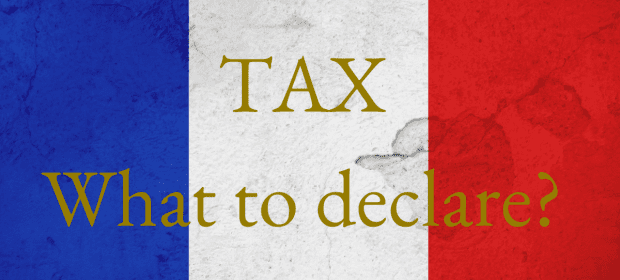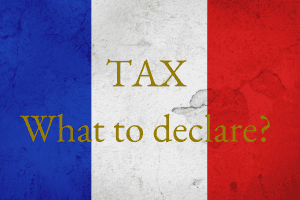During December, the French budget completed its Parliamentary process, with little change to the initial proposals. Shown below is a summary of our understanding of the principle changes.
INCOME TAX (Impôt sur le Revenu)
Income tax bands of the barème scale have been increased as follows:
| Income |
Tax Rate |
| Up to €9,807 |
0% |
| €9,808 to €27,086 |
14% |
| €27,087 to €72,617 |
30% |
| €72,618 to €153,753 |
41% |
| €153,784 and over |
45% |
The above apply in 2018 in respect of the taxation of 2017 income, for example, pensions and earnings.
SOCIAL CHARGES (Prélèvements Sociaux)
The Contribution Sociale Généralisée (CSG) has been increased by 1.7%. This results in investment income and property rental income (unless exempted by a Double Taxation Treaty), being liable to total social charges of 17.2%. In addition, where France is responsible for the cost of the taxpayer’s healthcare in France, social charges at a rate of 9.1% will be applied on pension income.
FLAT TAX on revenue from capital
The Prélèvement Forfaitaire Unique (PFU) – also known as the Flat Tax – has been introduced. This will be charged on the total amount of interest, dividends and capital gains from the sales of shares, received by the taxpayer. It also applies to certain gains in withdrawals from assurance vie contracts and this is covered in more detail in the following section.
The Flat Tax rate is 30%, made up as follows:
➢ a fixed rate of income tax of 12.8%; plus
➢ social charges at the rate of 17.2%.
However, the option to pay income tax at the progressive barème scale tax rates above (in lieu of the Flat Tax rate of 12.8%), plus social charges of 17.2%, is still possible, but only at the taxpayer’s specific request. In this case, the taxpayer will also benefit from the existing 40% abatement on dividends (but not for social charges).
Capital gains from the sale of shares, no longer benefit from taper relief, where the gain is taxed at the Flat Tax rate.
However, for shares purchased before 2018, where the taxpayer elects for realised gains to be taxed at the progressive barème rates, taper relief will continue to apply, as follows:
➢ 50% for a holding period from two years to less than eight years; and
➢ 65% for a holding period of at least eight years.
This relief also applies to gains arising from the sale of shares in ‘collective investments’, for example, investment funds and unit trusts, providing that at least 75% of the fund is invested in shares of companies.
Likewise, for investments made prior to 2018 in new small and medium enterprises, the higher allowances against capital gains for investments in such companies are also still provided, as follows:
➢ 50% for a holding period from one year to less than four years;
➢ 65% for a holding period from four years to less than eight years; and
➢ 85% for a holding period of at least eight years.
Similarly, the Contribution Sociale Généralisée (CSG) deductible portion (6.8% out of the total social charges of 17.2%) will only be permitted in the case of taxation at the progressive barème scale rates.
Taxpayers will not be able to selectively chose the income that is subject to the Flat Tax and that which is subject to the progressive rates of the barème scale. The default is the Flat Tax and where the taxpayer makes an election for any income from capital to be taxed at progressive rates, this will apply globally. Therefore, careful planning will be needed by some taxpayers, particularly if they intend to make a disposal of a large holding of shares and/or receive a large payment of dividends.
The Livret A, Livret Développement Durable and Livret Épargne Populaire accounts remain exempt from income tax and social charges.
ASSURANCE VIE & CAPITALISATION CONTRACTS
Premiums paid before 27th September 2017
For premiums paid before 27th September 2017, there is no change. Therefore, the taxpayer has the option to be taxed at the progressive rates of the barème scale or the Prélèvement Forfaitaire Libératoire (PFL) rates, as follows:
➢ during the first 4 years at 35%
➢ between 4 years and 8 years at 15%
➢ post 8 years at 7.5%
Social charges at the rate of 17.2% are payable in addition.
For contracts with a duration of at least 8 years, the abatement of €4,600 for a single person, or €9,200 for a couple, continues to apply.
Premiums paid from 27th September 2017
For premiums paid from 27th September 2017, the taxation rate will vary according to the age of the contract, plus for contracts older than 8 years, according to the ‘threshold’ amount of capital remaining in the contract as at 31st December of the year prior to the withdrawal being taken.
The threshold amount is €150,000 per individual person (across all assurance vie policies), which is determined by reference to the amount of the premiums invested, reduced by any capital already withdrawn, and not the value of the contract.
The threshold is not cumulative between persons and therefore, couples who are taxed as a household cannot share in each other’s threshold. Thus, one spouse may reach the threshold level, whilst the other does not, for example, where one has say €200,000 capital invested and the other only has €80,000 invested.
The reform provides for the PFU to apply for assurance vie contracts of less than 8 years, regardless of the amount of the outstanding capital. Thus, the PFU rate of 30% will be globally substituted for the pre-27th September 2017 rates of 52.2% (up to 4 years contract duration) and 32.2% (4 – 8 years contract duration)
Therefore, according to the age of the contract, the following tax rates will apply:
➢ during the first 8 years, the Flat Tax rate of 12.8%
➢ over 8 years, 7.5% up to the threshold, plus 12.8% above the threshold.
Social charges of 17.2% are payable in addition.
Insurers will be obliged to deduct the tax of 12.8%/7.5%, i.e. depending on the duration of the contract, plus the social charges. Subsequently, for contracts older than 8 years and where the taxpayer has exceeded the threshold, any additional tax due will be charged through the taxpayer’s annual declaration.
The following table summarises the situation:
|
Fixed tax rate applied |
Gaines from premiums
paid from 27/09/2017 |
Deducted by the
insurance company plus
social charges of 17.2% |
Additional tax payable
if threshold exceeded |
Additional tax payable
if threshold not exceeded |
| Contracts < 8 years |
12.8% |
No |
No |
| Contracts > 8 years |
7.5% |
Yes, to reach 12.8% |
No |
The post 8-year abatement of €4,600 for a single taxpayer, or €9,200 for a couple, continues to apply.
All taxpayers will have the possibility to opt for taxation at the progressive income tax rates of the barème scale, plus social charges, at the time of making their tax declaration. As the insurance company would have already deducted the PFU tax, any excess tax already paid will be refunded following the processing of the tax declaration made in the year following the payment of the withdrawal. However, taxpayers should be aware that if taxation at the progressive rates of the barème scale is chosen for assurance vie gains in amount withdrawn, then this will apply globally to all income from financial capital.
There is no change to the inheritance tax treatment of assurance vie contracts.
Examples of how the taxation will work:
Example 1
Mr X invested €200,000 in his policy in January 2017. In case of redemption after 8 years, as the premium was invested before 27th September 2017, the gain will be taxed at 7.5%, after application of the abatement of €4,600. Social charges of 17.2% on the total gain are also payable.
Example 2
Mr Y invests €200,000 in his policy in October 2017. In case of redemption after 8 years, as the premium was invested after 27th September 2017 and exceeds the threshold of €150,000, 75% of the gain will be taxed at 7.5% and 25% at 12.8%. The abatement of €4,600 will be first applied to the gain taxed at 7.5% and any balance applied to the gain taxed at 12.8%. Social charges of 17.2% on the total gain are also payable.
Example 3
Mr Z invests €100,000 in an assurance vie contract in 2007 and makes an additional investment of €200,000 in 2018. He decides to fully surrender the assurance vie in 2019, when the value of the policy is €360,000. €50,000 of the gain is attributed to the 2007 premium and €10,000 to the premium invested in 2018. Our understanding is that the tax on the total gain of €60,000 would be calculated as follows:
– 2007 premium: (€50,000 – €4,600) x 7.5% = €3,405.00
– 2018 premium: as he has only ‘used’ €100,000 of the €150,000 threshold against the 2007 premium, the balance of €50,000 can be applied to the premium paid after 27th September 2017, which is 25% of the €200,000 invested. Therefore, 25% of the gain of €10,000 relating to the 2018 premium will be taxed at 7.5% and the balance at 12.8%, as follows:
o (€10,000 x 25%) x 7.5% = €187.50
o (€10,000 x 75%) x 12.8% = 960.00
– Total tax = €3,405.00 + €187.50 + €960.00 = €4,552.50
Social charges of 17.2% on the total gain are also payable.
PROPERTY WEALTH TAX (Impôt sur la Fortune Immobilier)
Wealth tax on total assets (Impôt de Solidarité sur la Fortune – ISF) has been abolished and replaced with Impôt sur la Fortune Immobilier (IFI).
IFI will apply only to real estate assets and the principal residence is still eligible for the 30% abatement against its value. Therefore, taxpayers with net property assets of at least €1.3 million would be subject to IFI on taxable assets exceeding €800,000, as follows:
| Fraction of Taxable Assets |
Tax Rate |
| Up to €800,000 |
0% |
| €800,001 to €1,300,000 |
0.50% |
| €1,300,001 to €2,570,000 |
0.70% |
| €2,570,001 to €5,000,000 |
1% |
| €5,000,001 to €10,000,000 |
1.25% |
| Greater than €10,000,000 |
1.50% |
However, at the outset of the debates on the proposed tax changes, it quickly became clear that MPs were not entirely happy about the idea of replacing ISF with IFI. In particular, for people with substantial wealth, who would also benefit from the Flat Tax, this was considered to be a step too far! Therefore, additional taxes have been introduced on certain luxury goods, for example, yachts and sports cars.
TAXE d’HABITATION
Taxpayers who are not liable to IFI will benefit from reductions in taxe d’habitation, in respect of their principal residence, subject to certain taxable income (Revenue Fiscal de Référence) ceilings not being exceeded. For a single taxpayer, the taxable income limit is €27,000 and for a couple, €43,000.
For those who meet the requirements, their taxe d’habitation will be reduced by 30% in 2018, 65% in 2019 and total exoneration in 2020. Where taxable income is just above the income threshold (up to €28,000 for a single person and €45,000 for a couple), the reduction in the taxe d’habitation will be proportionally reduced.
ENTRY INTO LAW
The changes have entered into law following publication in the Official Journal of France.
22nd January 2018
This outline is provided for information purposes only. It does not constitute advice or a recommendation from The Spectrum IFA Group to take any particular action to mitigate the effects of any potential changes in French tax legislation.







